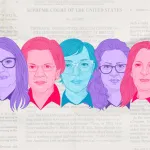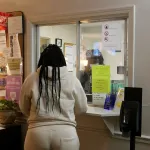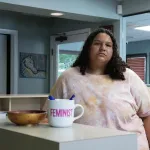This project was published in partnership with The Guardian.
JACKSON, MS — The Pink House wasn’t Tiara’s first choice. It wasn’t even her second. But it was one of the only places that could help her.
Tiara, who withheld her full name for privacy, lives in Beaumont, Texas. She and her husband have three children: a 2-year-old and 1-year-old twins. She works and is in charge of the majority of parenting duties with her kids.
Soon after a Texas law known as SB 8 had taken effect, Tiara found out she was pregnant. Her home state had banned abortions for anyone further along than six weeks in a pregnancy, a point at which most people, Tiara included, don’t realize they’ve conceived. Oh, no, she thought.
“It’s my first time doing something like this,” she said.
So at 3 a.m. on a Tuesday in October, she set out for Jackson, a six-hour drive away. With her husband watching the kids at home, Tiara headed to the Pink House, one of the closest places she could access an abortion. She didn’t know how much the procedure would cost. $600? $650? But she knew she needed to make it work.
Across the country, abortion access has grown increasingly fragile over the past decade. This year, the battle to undo Roe v. Wade — the 1973 Supreme Court case that guaranteed the right to an abortion — may finally reach a crescendo. The Pink House, which is the nickname for Jackson Women’s Health Organization, is at the center of the case, which is widely seen as a chance to undo 50 years of abortion rights.
On December 1, the Supreme Court will hear a case initiated by Jackson Women’s Health, the only abortion clinic in Mississippi. The clinic has challenged a Mississippi state law that would ban abortions after 15 weeks of pregnancy, arguing that it violates Roe v. Wade’s precedent of guaranteeing the right to an abortion until after a fetus can live independently outside of the womb.
In some ways, a 15-week ban on its own could mean relatively little — Jackson Women’s Health does not perform abortions after 16 weeks of pregnancy, and nationally, most abortions occur before 13 weeks. But abortions after 15 weeks are usually those performed for people who discover health concerns later in the pregnancy, or who haven’t been able to pull together the money, time and resources to access an abortion earlier. For them, the loss of even one week is tremendous.
That Tuesday morning, Tiara walked past the anti-abortion protesters who regularly yell Bible verses as they camp outside the Pink House. She was greeted by the facility’s clinic escorts — volunteers whose job it is to help patients safely enter and exit the facility. That day, they wore brightly striped vests and had set up speakers blasting songs by Prince and Journey, an attempt to drown out the protesters.
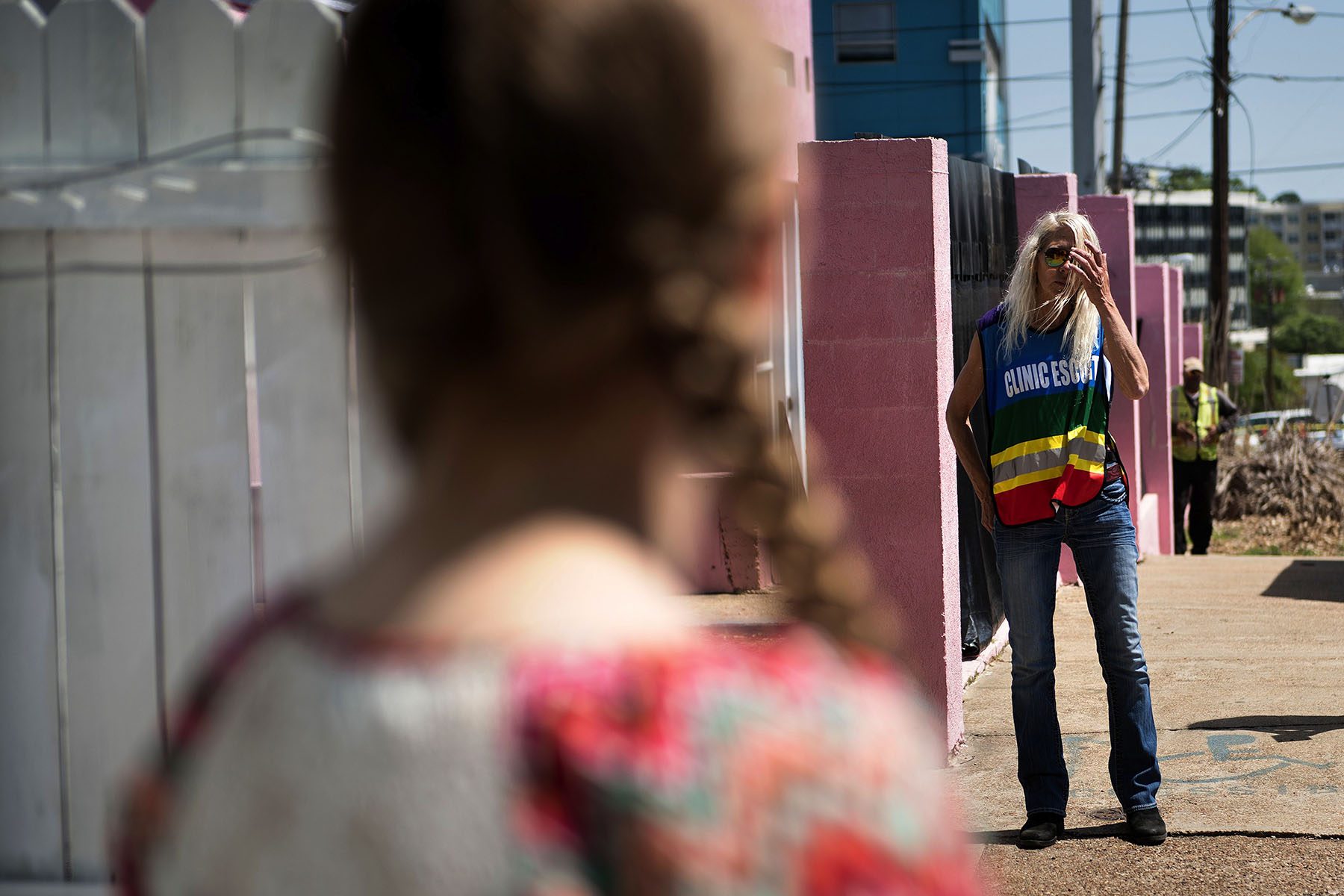
Inside the clinic, Tiara sat through Mississippi’s state-mandated counseling, which includes a false claim that abortions can increase the risk of breast cancer. A sonogram showed she was 11 weeks pregnant — late enough that she would need a minor surgery to end the pregnancy.
Mississippi is one of several states that requires patients to come in for two visits to get an abortion: There’s the initial counseling and then, 24 hours later, the abortion itself. But Tiara’s first appointment was Tuesday, and Jackson Women’s Health wouldn’t be open the next day.
So that night, Tiara would drive the six hours back to Beaumont. She’d see her kids and her husband. And two days later, she would make the journey all over again.
“I already have kids. They’re too close in age,” Tiara said from the clinic waiting room. “I really don’t think it’s right, taking abortion away.”
If the Supreme Court upholds Mississippi’s 15-week ban, the decision would almost certainly weaken Roe v. Wade. Much depends on the nuances of how the court issues its decision. But if the court takes the case a step further, suggesting that the Constitution does not protect abortion rights and states are free to regulate the procedure as they please, Mississippi’s governor has indicated he would pursue a total state ban. Many observers believe that such an outcome is likely.
In Jackson and beyond, the impact would be tremendous.
“It’s going to be detrimental to women in Mississippi. It’s going to be detrimental to women in the South,” said Shannon Brewer, the clinic director for Jackson Women’s Health. “Eventually, it’s going to be detrimental to women everywhere.”
Abortion access in Mississippi — one of the poorest states in the country, and with one of the highest rates of pregnancy-related deaths — was already tenuous at best. Jackson Women’s Health is the only clinic in the state. For many patients, both in Mississippi and from neighboring states, it’s a lifeline.
“The patients here are the ones who can’t afford to fly to another state,” Brewer said. “These are the ones who can’t afford to take time off work because they’ll lose their jobs, or who can’t find someone to watch their kids.”
This year in particular, the clinic is under unprecedented pressure, Brewer said, glancing between sentences at the array of security camera feeds above her desk. Jackson Women’s Health is under constant scrutiny, thanks to the national interest in the upcoming Supreme Court case. But at the same time, the workload for physicians has grown astronomically, even in just the past few months.
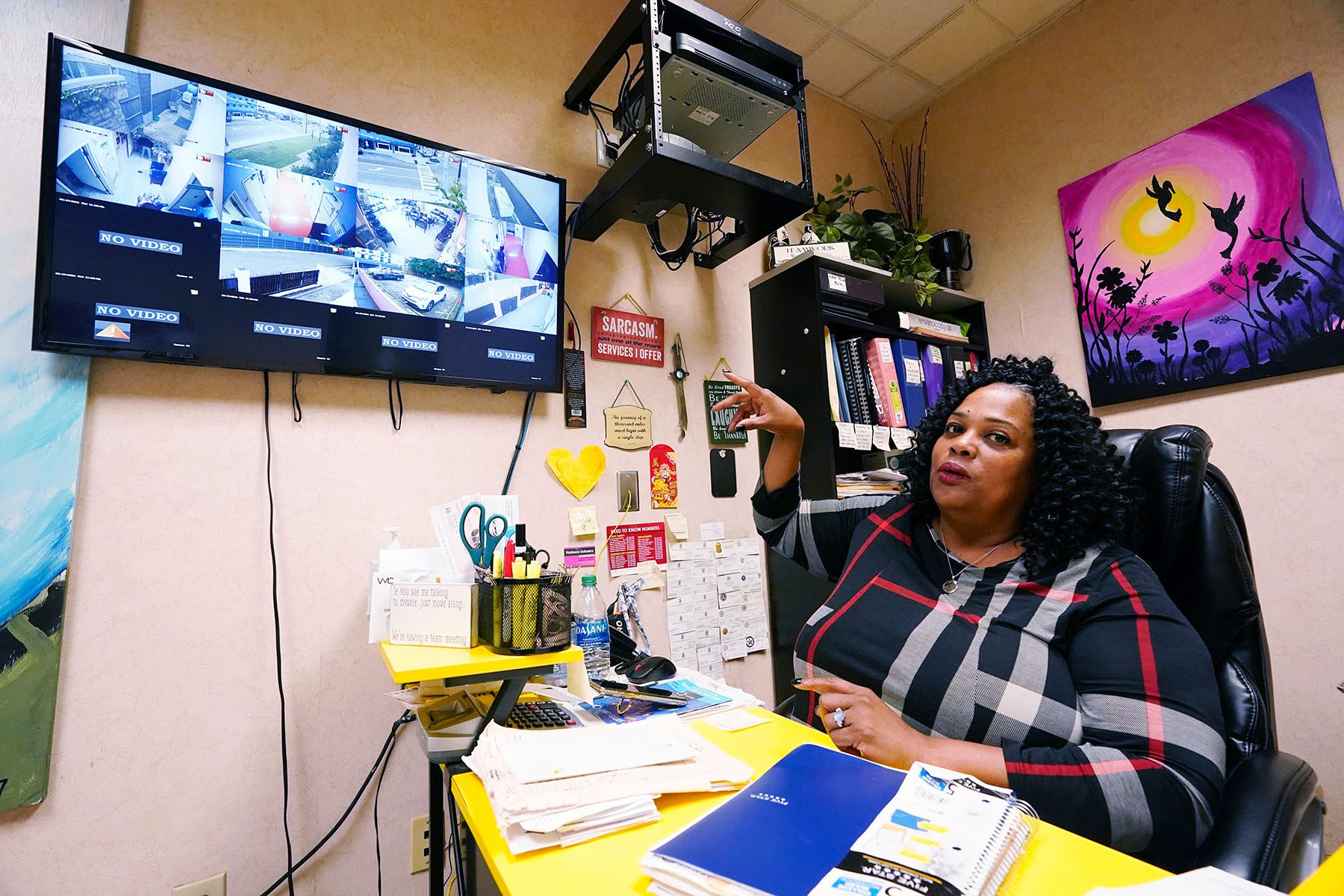
Mississippi is neighbor both to Louisiana — where abortion infrastructure was devastated by Hurricane Ida this summer — and to Texas, where the six-week ban has effectively ended access to most abortions. Now, maybe half of the patients who come through here are from one of those two states. Clinics in Oklahoma are calling Jackson Women’s Health asking if its doctors can help schedule appointments for Texans seeking out-of-state care.
Nestled between cafes and restaurants in Jackson’s gentrifying Fondren neighborhood, the clinic would be easy to miss if not for the daily stream of protesters who wait outside with posters, offering anti-abortion pamphlets. It isn’t a big building. There are two rooms for surgical abortions to be performed, office space for doctors and staff, and patient waiting areas in the front and back of the building. Visitors can buy snacks — a bag of chips, or a bottled water – from the front waiting room.
The cheapest procedure — a medication abortion before someone is 11 weeks pregnant — costs $600. An ultrasound, which is mandatory, is an extra $100. Those aren’t small amounts, particularly in a state where 1 in 5 working women live below the poverty line, and health insurance in Mississippi is generally prohibited from covering abortions.
Sarah, a 29-year-old patient, drove two and a half hours to come here, borrowing a friend’s car to make the drive. (Sarah is a pseudonym; she asked that her first and last name both be withheld.) She came early in an effort to avoid the daily deluge of protesters.
Sarah hadn’t told a single person she was pregnant — about four and a half weeks along — or that she was seeking an abortion. Her family is deeply religious, she said. They wouldn’t understand.
Having a child just isn’t feasible right now, she said. When the coronavirus crisis first hit Mississippi, she lost her job. She and her fiancé had to sell their house so that they could pay the bills. She’s living with her parents until she gets married.
“My life at this point doesn’t allow me to have children,” she said from the small waiting area in the back of the building. “I didn’t mean to get pregnant.”
But if the clinic hadn’t been here, Sarah said, she isn’t sure what she would have done. She doesn’t think she could have feasibly driven more than four hours each way to get an abortion.
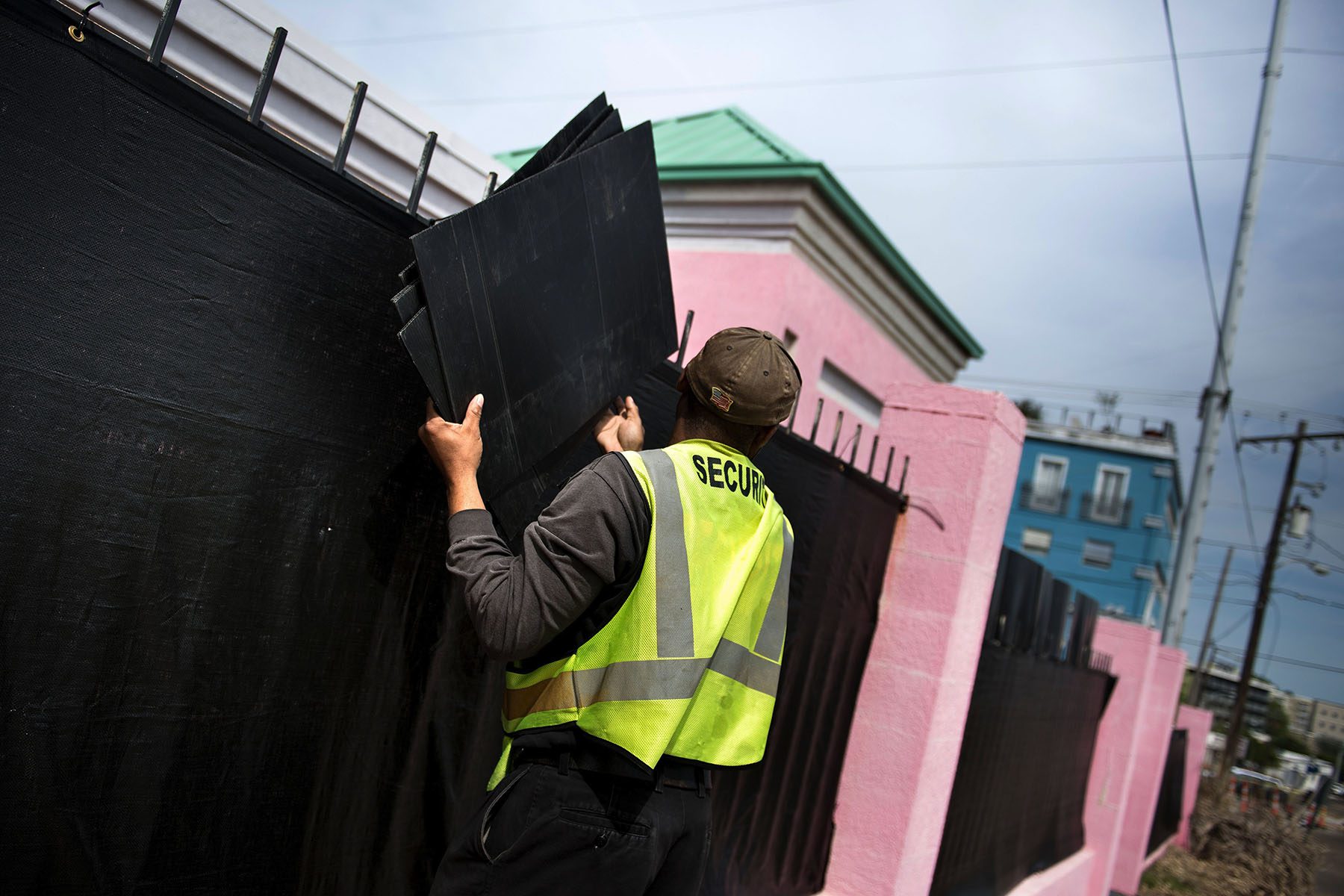
Already, nearly half of Mississippians who get an abortion are leaving the state to get it. In 2018, about 4,700 Mississippians ended a pregnancy, per data from the state health department. But that same year, only about 3,000 abortions were actually performed within the state, according to the Centers for Disease Control and Prevention.
That means close to 2,000 residents had left Mississippi for an abortion, often heading to clinics in Tennessee and Alabama, per CDC data.
If Roe v. Wade were to be overturned, every single one of Mississippi’s neighbors — Texas, Tennessee, Alabama and Arkansas — has laws on the books to outlaw the procedure. The next closest options would be Florida, North Carolina, Kansas and Illinois.
The week of October 18, 104 patients got abortions at Jackson Women’s Health — more than double the norm.
The clinic has upped its hours: Before the Texas ban took effect, Jackson Women’s Health was open three days a week. Now it’s open five days, sometimes six. They hired two more doctors — now five different physicians fly in from out of state to provide abortions. The clinic pays for their plane tickets, their rental cars and their lodging.
“When patients call and we’re able to get them in the following week, they’re willing to drive that far, instead of having to wait two, three, four weeks,” Brewer said. “So many states are limited with their doctors, to where it fills up your schedule so quickly. Patients don’t have a choice but to wait. That’s why we brought in these doctors. We’re thankful to have these doctors, but that’s the only reason we’re able to see the patients.”
Still, many here believe it’s a matter of when — not if — abortion rights disappear. It’s been a transition years in the making.
“Mississippi has always been on the chopping block,” said Michelle Colon, a long-time abortion rights organizer in the state. What’s different now, she said, is how widespread restrictions have become.
Activists are trying to imagine a future without Roe v. Wade, in which Mississippi and its neighbors no longer have abortion rights protections.
Part of that means training people in how to use Plan B, the so-called “morning-after pill” that can prevent pregnancy if taken within three days of unprotected sex. Colon’s organization, known as Sisters Helping Every Woman Rise and Organize (SHERo), is even working with local churches to help distribute the pill.
Then there are efforts to establish abortion networks.
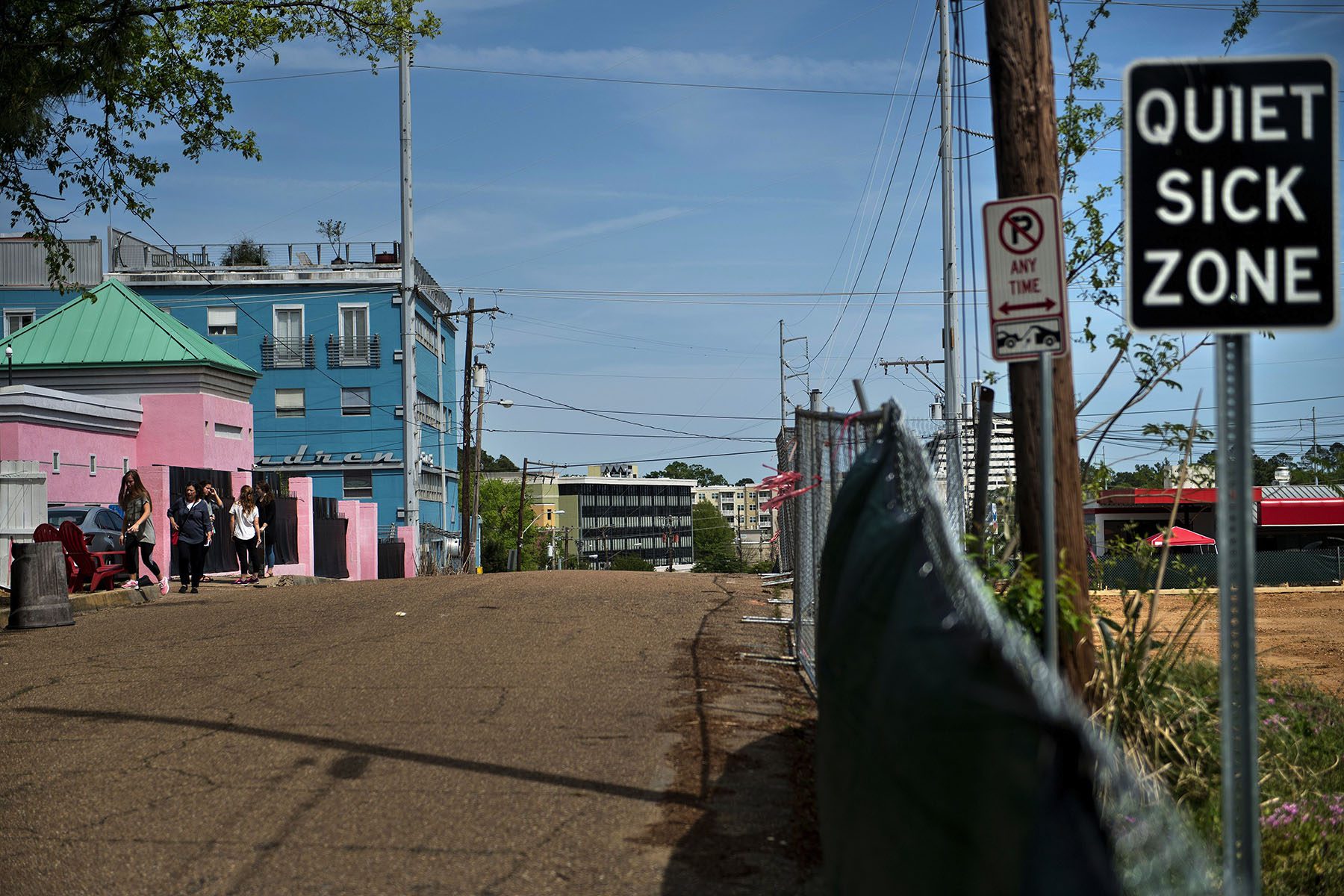
Organizers and abortion funds are working to build relationships with clinics out of state, so that, in the event Mississippi does outlaw abortion, they are able to help people travel elsewhere for an abortion.
And they are trying to spread awareness of what is called “self-managed abortion” — taking medication abortion pills at home, which, if done correctly, can be a safe option for people who are earlier than 10 weeks in a pregnancy. (Safe self-managed medication abortion in the first trimester is endorsed by the World Health Organization.)
Legally, a person who is not a doctor cannot recommend a set of medications to treat a condition. But simply talking about the possibility of self-managed abortion is permissible. Five states have criminalized self-managing abortions. Mississippi is not one of them.
Finding pills, though, would still require knowing someone who knows where to get them, or having access to an online retailer, and the money to pay for it. It assumes someone is early enough in pregnancy that a pill is still a viable option. And even in states that have not criminalized the practice, people who attempt self-managed abortion can still risk prosecution.
“It’s going to be challenging,” Colon said. “But how do you say no? How do you not help someone?”



